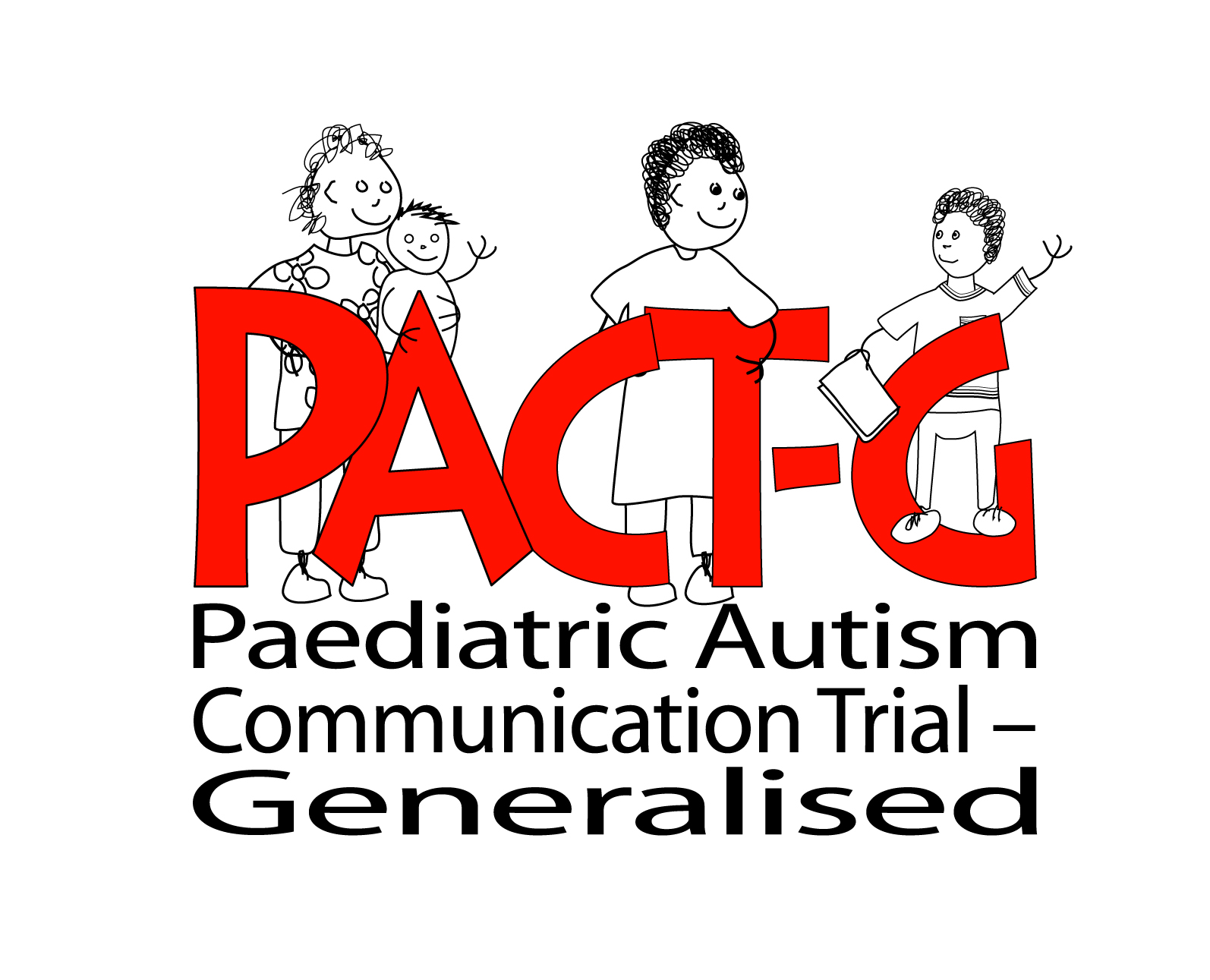Further information for practitioners
Nature of the study
Background: A previous study by our group with an earlier, clinic-based version of PACT-G therapy (PACT therapy) showed that, on average, the therapy helped children communicate more with their parent. However the therapy did not help children so much communicate socially with adults outside the family, that is, the social communication improvements gained did not seem to generalize. You can read more about the original PACT study on the PACT website (http://www.bbmh.manchester.ac.uk/pact).
The current study: In the PACT-G study we want to see if we can help children to generalise what they were able to learn with their parent in the clinic so that they are also communicating more with other adults and in other situations. We think that delivering the therapy to both the parent and to a key person, such as a learning support assistant, in the child’s nursery/ school will help. We also think that working with the parent and the school staff in their own settings, i.e. at home and in nursery/school rather than in the clinic, will help the children to use any new skills more widely. Our earlier study included young children between 2 and 5 years of age. In the new study we will again be inviting parents of young children with autism to join the study and we also want to see if the therapy is useful for primary school aged children with autism.
The study is funded by the National Institute of Health Research and the Medical Research Council and will run between 2016 and 2019. The study is led from the University of Manchester in collaboration with the University of Newcastle and the Institute of Psychiatry and St Thomas’ Hospital in London.
The study is designed to recruit 244 children and their families into the trial and to randomise them into two parallel groups:
- Continuing their treatment as usual (TAU).
- Continuing treatment as usual with the addition of the PACT-G therapy.
The PACT-G therapy
The PACT-G therapy will be delivered by Speech and Language Therapists employed/ seconded by the local Health Trusts under the direction of the senior therapists within the research team. The PACT-G therapy is an enhanced and extended version of the PACT intervention, aimed at generalising the communication gains found with the original intervention across people and contexts.
Families in the therapy group will have 12 PACT-G therapy sessions with a speech and language therapist (SLT) from our team. Some of these sessions will be 1½ hour face to face sessions delivered at home and some will be 30-45 minute discussions by telephone or using skype. Face to face sessions use video feedback methods to facilitate parental observation of their child’s communication and to encourage parents to adapt their interaction with their child in order to increase child communication. After each session parents are given a written programme and asked to carry out half an hour of home practice with their child each day. Between face-to-face sessions they will also have a telephone/skype session with the speech and language therapist to discuss progress and problem-solve any issues arising. Once the parent has completed all 12 sessions we will ask them to carry on with the home practice until the end of the year.
At about the same time the speech and language therapist will also deliver a similar therapy to a key person in the child’s educational setting; exact timing will depend on school term times but there will always be overlap with the parent’s sessions. Monthly meetings between parents and the key education person will also be organised.
Information Sheets
Formal Information Sheets relating to the main study can be found here.
